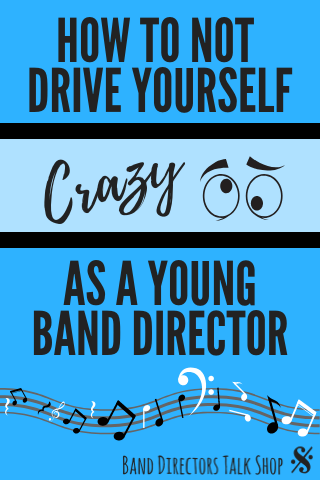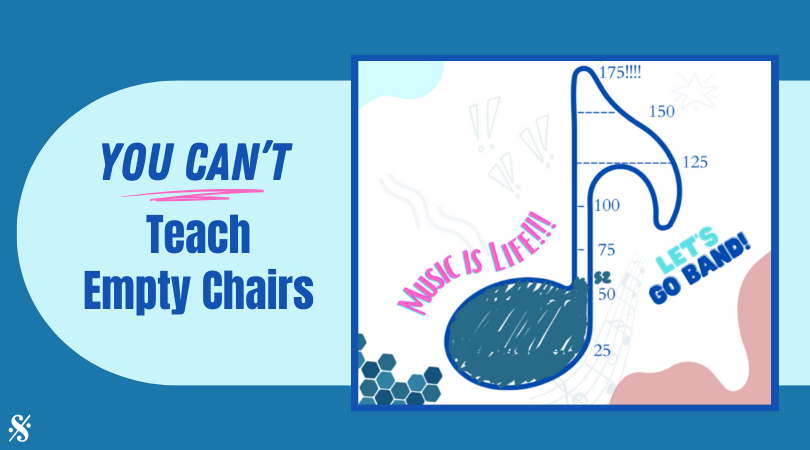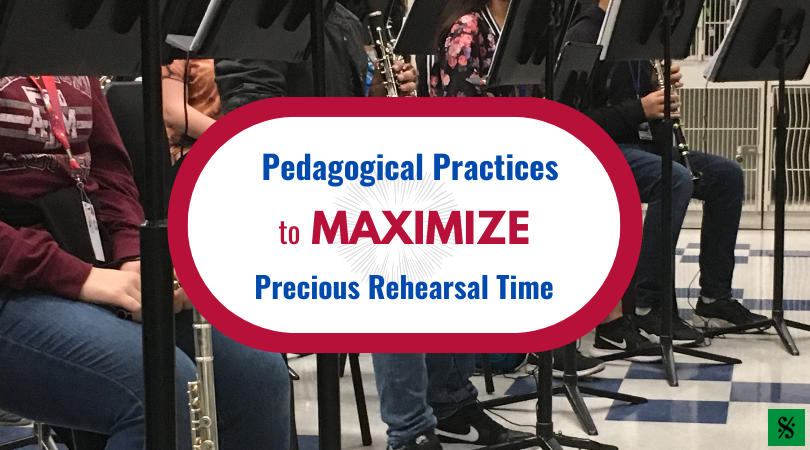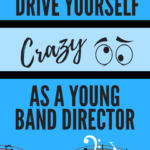Over the course of the next few weeks, thousands of young band directors will begin their first days in a band hall as a teacher. After (at least) four years of college, countless hours of practice, student teaching, and learning, you’re ready to begin your career. Anybody who is starting their first year of teaching has probably heard some variation on these words:
“Your first year of teaching is hard.”

…But if you are at all like me, then you knew that those people were wrong. Those people did not know how ambitious, smart, wise, and experienced I am! I sat in the Wind Ensemble at a respected university and developed into a good musician. They had no idea, but I was about to go in and change band directing as we all knew it. Things would be “different” for me because I had it figured out.
…and then real life happened. My first year (and let’s be honest, my second year, too) was the process of falling hard and learning how to get back up. More importantly, I had to learn to depend on the people around me and trust their opinions as much, if not more than my own. There is no secret formula to staff chemistry, but more often than not, lack of it can drive a young teacher (and their coworkers) up the wall. The following is a couple of hints to help you walk in on your first days and be the best coworker you can be.
Communicate – The foundation of every relationship in your office and program wide is communication. Through communication, we not only trade ideas and learn about each other, but we build lines of trust. As an educator and coworker, it is important to remember that communication goes both ways. As much as you would like to be heard as a young teacher, listen to what those around you are saying and trying to tell you. As one of my mentors told me, “There are things you don’t know you don’t know.” Ask questions and be honest with yourself and your coworkers.
Check your ego at the door – Whether we like to admit it or not, we all have an ego. An issue most first-year teachers face is just that. If you are entering this profession, you have experience in music, and thus, various opinions that may or may not work with that of your coworkers. Coming to my first job, I was coming off a relatively successful college career. Loosely translated, that means, “My ego was huge.” After a year of frustration, I realized that the only thing that the wall of your ego does is prevents you from learning and growing. True, my experience was valuable and valid, but everyone on the staff brings a unique perspective and valuable information. One of the larger lessons you can learn in your career is that “You are not always right, and that’s okay.” Ego has essentially no place in a creative and cooperative work environment, and often works to interrupt what could be a positive exchange of information.
Don’t be afraid (or too stubborn) to say “Yes” – This tip is rooted in the fact that not every job is a glamorous job. Speaking frankly, When I stormed into our band office on the first day eager to change the world, the last thing on my mind was “I’m pumped to move these props!” or “I’m pumped to knock out these calendar requests!” My first reaction should have been, and is now, “I want this team to succeed, thus I will do whatever we need to succeed.” More often than not, it takes time to learn and understand the gears the make the machine run. Don’t be afraid to say, “Yes, I’ll do that for our team”, remove any pride and/or ego, and go be awesome!
Be yourself – Your head director, fine arts administrator, principal, and other assistant/associate directors hired you because they wanted to work with you as much as you want to work with them. That said, be yourself and realize that these people are there to help you! Oftentimes, we put the most pressure on ourselves to instantly go into the field and change everything, whereas we should be focusing on being part of a cooperative and creative team, and finding ways to make sure the students have a rewarding experience!
There is absolutely no problem with wanting to be awesome in your first year. Our profession needs educators with energy, and people that are passionate and care about sharing music education with students. Through using your resources around you, listening to your mentors, and putting the needs of the program and team before preconceived notions or ego, you will help yourself and your team be happy with your work in the long haul.
Mr. Weston Lewis is a graduate of the University of Houston Moores School of Music and is currently teaching in Klein ISD. Previously, he worked with high school bands and taught privately in districts throughout Houston.
Related Reading:
Music Mentors Can Make a Difference
Band Director Back-to-School Checklist
Beginning of the Year Tips from 60+ Band Directors
If you would like to receive our weekly newsletter, sign up here.
Don’t forget to like us on Facebook too!
Learn. Share. Inspire.
BandDirectorsTalkShop.com






Leave a Reply
You must be logged in to post a comment.